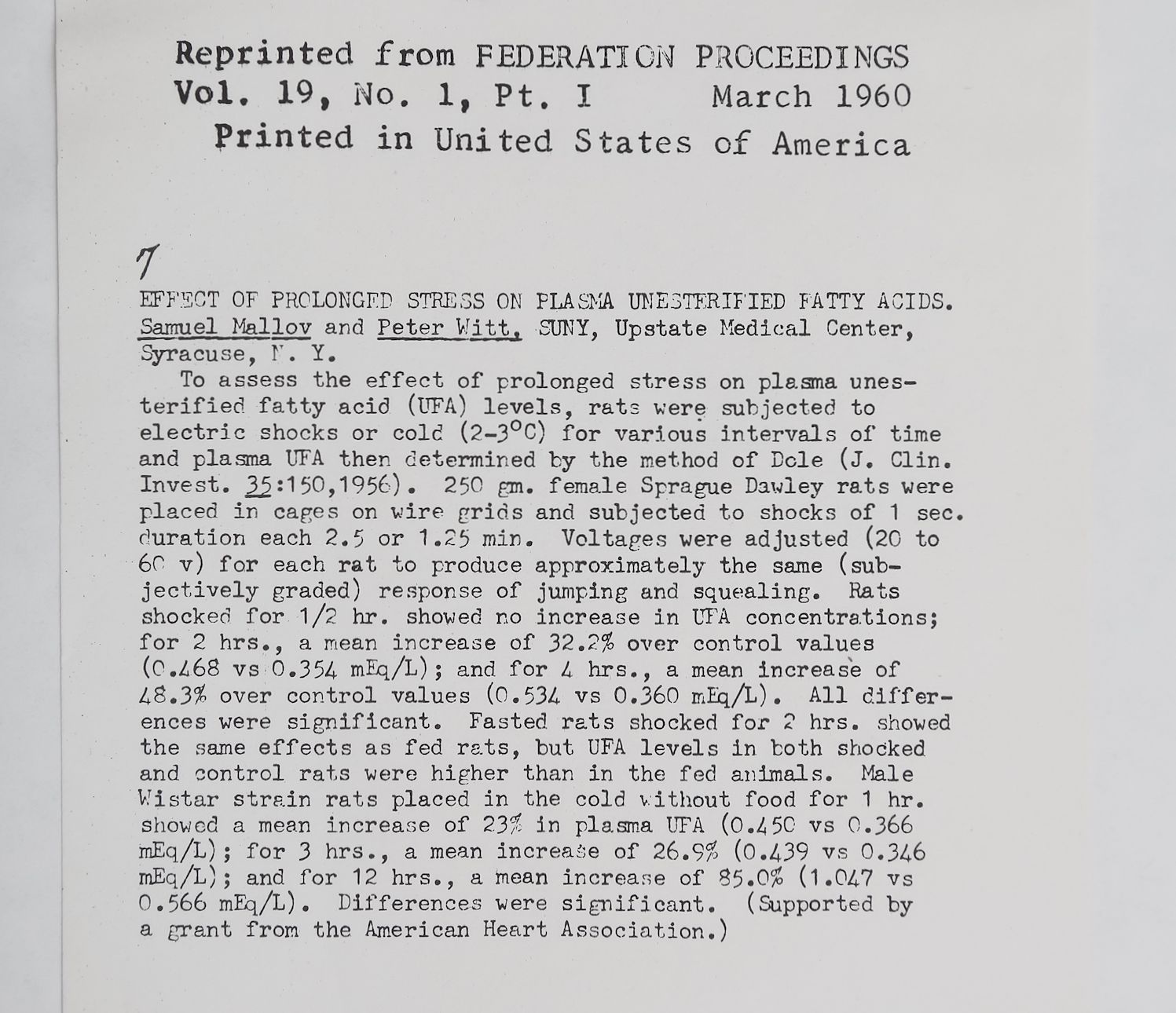Images Collection
View this article in Search Friendly Plain Text
NOTE: This plain text article interpretation has been digitally created by OCR software to estimate the article text, to help both users and search engines find relevant article content. To read the actual article text, view or download the PDF above.
Reprinted from FEDERATION PROCEEDINGS Vol. 19, No. 1, Pt. I March 1960
Printed in United States of America
1
EFFECT OF PROLONGED STRESS ON PLASMA UNE3TERIFIED FATTY ACIDS. Samuel Mallov and Peter Wittr SUNY, Upstate Medical Center, Syracuse, F. Y.
To assess the effect of prolonged stress on plasma unes-terified fatty acid (UFA) levels, rats were subjected to electric shocks or cold (2-3°C) for various intervals of time and plasma UFA then determined by the method of Dole (J. Clin. Invest. ¿jj:1 $0,1956) • 250 gm. female Sprague Dawley rats were
placed in cages on wire grids and subjected to shocks of 1 sec. duration each 2.5 or 1*25 min. Voltages were adjusted (20 to 60 v) for each rat to produce approximately the same (subjectively graded) response of jumping and squealing. Rats shocked for l/2 hr. showed no increase in UFA concentrations; for 2 hrs., a mean incréase of 32.2% over control values (0.468 vs 0.354- mEq/L); and for A hrs., a mean increase of AS.3% over control values (0.53A vs 0.360 mEq/L). All differences were significant. Fasted rats shocked for 2 hrs. showed the same effects as fed rats, but UFA levels in both shocked and control rats were higher than in the fed animals. Male Vistar strain rats placed in the cold without food for 1 hr. showed a mean increase of 23% in plasma UFA (0.450 vs 0.366 mEq/L); for 3 hrs., a mean increase of 26.9% (0.A39 vs 0.346 mEq/L); and for 12 hrs., a hiean increase of 85*0% (1.047 vs 0.566 mEq/L). Differences were significant. (Supported by a grant from the American Heart Association.)

